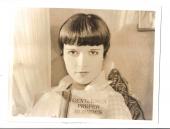Tuesday, July 30, 2024 - 3:03am
Re: "Stella Adler" book & Willy Loman's car insurance
From James S. Zaza (jameszaza@sympatico.ca):
In your great new book [Stella Adler on America’s Master Playwrights, published by Alfred A. Knopf] you said that Willy Loman could NOT collect on his insurance. Is that Stella’s quote or yours? It's not in the play!





Comments
Barry Paris
March 29, 2013 - 4:25pm
Permalink
Thanks very much for your
Thanks very much for your message, which raises an excellent point that hadn’t occurred to me before. First, to answer your specific question re: the plot synopsis that opens the “Death of a Salesman” chapter:
“A brief Requiem reveals that [Willy’s insurance] policy didn’t cover suicide,” it says. Those words (like all the words in the opening play synopses throughout the book) are mine, not Stella Adler’s---as indicated by the “B.P.” initials below them.
Second, you’re quite right that playwright Arthur Miller put no such explicit statement in the Requiem. But I think you’ve missed that implicit fact---Miller’s subtle set-up!---about 10 pages earlier, when Willy unveils his “guaranteed $20,000 proposition” to go out with a bang, impress everybody, and leave Biff the big life-changing windfall. His friend Ben warns: “You don’t want to make a fool of yourself. They might not honor the policy.” Willy says: “How can they dare refuse? Didn’t I work like a coolie to meet every premium? And they don’t pay off? Impossible!” Ben again: “Remarkable proposition, but you’ve got to be sure you’re not making a fool of yourself.”
The words “suicide” and “car crash” are never spoken, but we clearly get the idea. All insurance policies---even in the 1940s---had a suicide-revocation clause. In the Requiem, Hap’s line (“He had no right to do that”) and Linda’s (“I can’t understand it”) indicate they---and, by inference, the insurance co.---concluded it was obviously suicide.
Final proof is Biff’s line: “Why don’t you come with me, Hap?” (to seek his fortune out West) and Hap’s reply: “I’m not licked that easily”---i.e., they’re both as broke as ever.
But guess what? You’re right: I made the wrong word choice! I should not have said the Requiem “reveals” all that. It infers it, from previous information.
Hence,
an example of the author-editor’s nightmare: You spend a decade trying to get it right but discover things you got wrong---too late to correct them.Anyway, thanks for bringing it to my intention---and, even more, for reading and enjoying the book.
Elizabeth
April 28, 2014 - 5:38am
Permalink
I think that the best evidenc
I think that the best evidence for this inference is in Act One (more of Miller's "subtle set-up") - when Linda reveals to Biff that Willy is suicidal, she says "the insurance inspector came. He said that they have evidence. That all these [car] accidents in the last year - weren't - weren't - accidents." The "evidence" is in fact a witness to one of these accidents. The insurance company knows exactly what is going on and has already taken steps to rule out payment in case of Willy's suicide (which Willy ought to know... hence his fear of making a fool of himself).
(Ben, of course, is not actually his friend, but a product of Willy's imagination representing his long-gone brother - so any conversation Willy has with Ben is, by implication, a conversation he's really having with himself.)
Thanks for helping clarify this point for me - both by your own explanation and by making me refer back to the text. I was surprised to discover that the insurance policy is not explicitly mentioned at the end of the play! Linda does manage to pay off the mortgage somehow, and seems to feel that she's financially level at the end, which adds another level of ambiguity. Another read on it could be that even with the £20,000, or any sum, these people still don't know who they are, what they want to do, how to stop hurting each other, or how to be content. I have hopes for Biff, who seems to be ready to face reality.
cheers, elizabeth
Rob
March 14, 2014 - 7:20pm
Permalink
Regarding Thelmah, I can lite
Regarding Thelmah, I can literally see the mischievious look in her eye as she made the "immortal" reply. Seriously, why did they name it after a hot dog?? smile Even into her 90's she would often get that look from her 'spot' in the living room chair. Knowing with just a few words she could spice up the moment. I wondered if she weren't simply the 'director' manipulating all of us for her own amusement. Sometimes she'd comment on my hairstyle in her inimitable way. "You look like Lizzy Zilch." or, "Did you comb your hair with an eggbeater?" Or the ever-ready, "You aren't going out looking like that, are you?" Always said with that little smile. None of this had the ability to completely repress my likeliness to go to the mall at any time looking like "something the cat dragged in", to use mother's phrase. I knew full well mother never went ANYWHERE without the full treatment: hair done, pressed clothes, lipstick, powder and rouge. No wonder she often had such a perplexed, yet resigned look whenever she had to watch me barrel out the door still wearing my pajama bottoms ("I'm only going to the grocery store.").